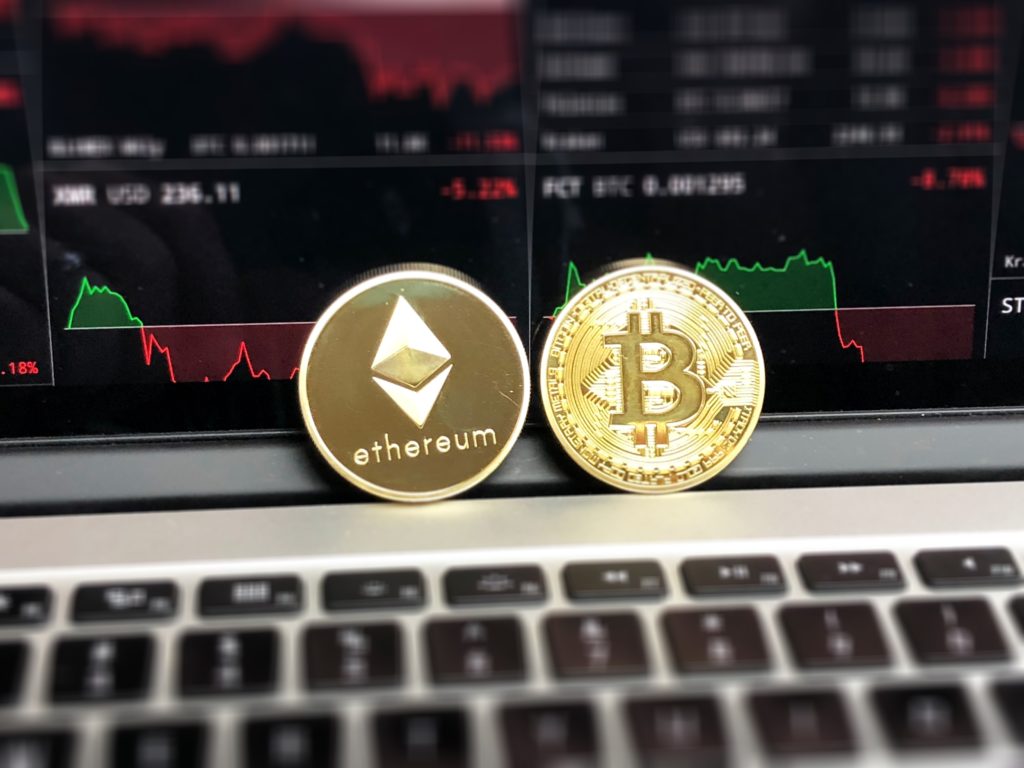Globalisation, automation and rapidly changing needs mean the future of employment will probably look very different to now. In fact, many current careers won’t exist in the next 10 to 20 years. So, it’s critical that students ask the important question: ‘Will my chosen study path lead to strong job opportunities after graduation and beyond?’
In this series we’re exploring a range of occupations forecast to have strong employment prospects in the future. Some careers in the tech industry are quickly emerging. Plus, there are other existing careers that will also have an important place in the employment opportunities of tomorrow.
Today, we’re looking at cryptocurrency, a kind of global digital currency that’s taken the world by storm.
WHY CRYPTOCURRENCY?
Money is a ledger – an account of who owns (and owes) what. Traditionally, a ledger is a book of records that keeps tabs on all financial transactions made by an organisation.
Blockchain technology is a decentralised digital ledger. In a sense, it is a shared ledger between many people over a network, which can be used to confirm transactions without a certifying agency such as a bank. Cryptocurrency, or ‘cryptographic currency’, is used on a blockchain network – it’s a digital currency.
Cryptocurrencies are the future of finance
At the moment, the most well-known cryptocurrencies are Bitcoin and Ether (a token of Ethereum blockchain). However, cryptocurrencies still remain unrecognised by the Australian Taxation Office. But Professor Jason Potts, head of the new RMIT Blockchain Innovation Hub, believes that cryptocurrency may revolutionise the finance world.
“The entire modern economy is built on ledgers,” he says. “The role of modern government is essentially built on ledger technology, to keep records of citizens, who have particular rights and accesses to things, so the significance of this new technology is potentially revolutionary in terms of corporations and the role of government.”
Cryptocurrencies represent innovation
Cryptocurrencies are associated with lower transaction costs and faster speeds, particularly with international transactions. They have the potential to increase competition in Australia’s payments system, as well as to change who controls our information and how people interact online.
The possibilities with blockchain are endless
Whilst cryptocurrency is currently the most dominant blockchain application, future applications could extend to public records, asset titling, land registries, asset registries and share registries. Much like smartphones and the internet, there’s no knowing just how central to our lives blockchain may become.
You’ll be one of the first to enter an exciting new industry
Whilst many of us already know the buzzwords (‘Bitcoin’, for example), some might not have a clue how blockchain technology really works. Despite its medieval roots, the industry itself is new; blockchain technology didn’t even exist until 2008!
Whether you’re a data scientist, financial analyst, machine learning engineer, computer journalist, security architect, marketing manager, web developer or white hat ethical hacker, blockchain technology is becoming increasingly relevant.
By learning about blockchain technology, you’ll be at the forefront of technological advancement. You’ll be getting in first, diving deep into a very exciting and new industry with a potential goldmine of possibilities and opportunities before you.
EDUCATION PATHWAYS
To qualify to specialise in the field of cryptocurrency, you may need to complete a Bachelor qualification in a related field, such as economics and finance. Relevant career pathways may include:
- Financial planning
- Economics and finance
- Accountancy
- Marketing
Hear from a cryptocurrency expert
It’s clear that cryptocurrency and blockchain technologies are becoming more relevant to our everyday lives than ever before. But things didn’t start out that way.
“It came from the crypto-anarchist-hacker community and existed in that world for a while, and has only really broken out in the past few years,” says Professor Potts from RMIT. “The fact that it’s gone from that level to the level it has and the public awareness it has now, in such a short time, is just incredible.”
The infancy of cryptocurrencies has been compared to the early take-off of the internet.
“The internet took 30 years to break out of its 1960s invention by the US military. It was 1990 before it broke through and really took another decade after that before it got commercial applications.”
Realising this potential, RMIT established the Blockchain Innovation Hub, a research centre dedicated to increasing understanding of blockchain technologies. The first of its kind in the world, it’s here that students and researchers examine the future economic, societal and cultural impacts that blockchain technology may bring.
“What we’re trying to do with the Blockchain Innovation Hub is develop some courses to facilitate that process and provide not just learning, but also credentialing to enable people to signal to employers and other people that they have these particular skills,” says Potts.
Melbourne is gradually changing into a hub of blockchain activity — and start-ups, policy-makers, and entrepreneurs are taking notice.
“There’s a lot of interest from the start-up community and from government ministers at state and federal level wanting to be involved or wanting to lead and develop this industry,” says Potts. “They see it as the fundamental infrastructure technology of the new economy and they don’t want to be behind the curve on this.”
And neither should students.
“It doesn’t really matter what industry you’ll end up in,” says Potts, “This will likely be the technological infrastructure upon which new industries and jobs are based.”





